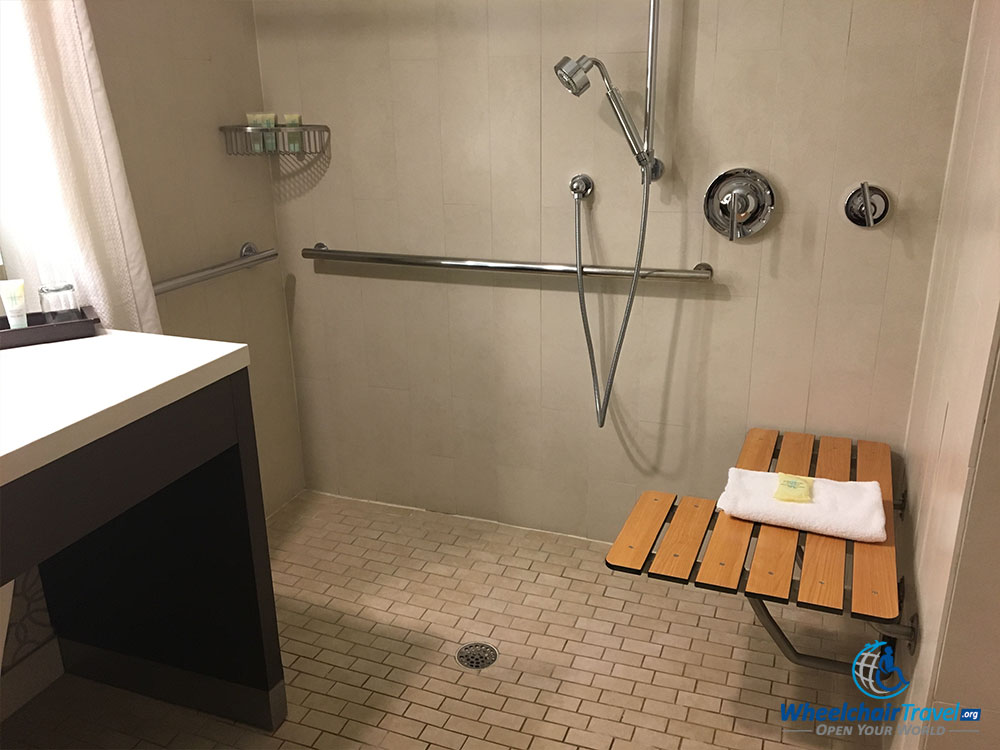
In today’s society, inclusivity and accessibility have become essential aspects of our daily lives. As the world progresses towards a more inclusive future, it is crucial for businesses, particularly hotels, to ensure that their facilities are accessible to individuals with disabilities. One area that requires special attention is the bathroom. In this article, we will delve into the significance of having accessible baths for individuals with disabilities in hotels, exploring the challenges they face, the benefits of accessible bathrooms, and the positive impact they can have on both guests and the hospitality industry as a whole.
Understanding the Challenges
Limited Mobility: Many individuals with disabilities, such as those who use wheelchairs or have mobility impairments, face difficulties in navigating standard bathrooms designed for able-bodied individuals. Doorways, narrow spaces, and inaccessible fixtures pose significant obstacles to their independence and comfort.
Safety Concerns: Bathrooms in hotels often contain slippery surfaces and various potential hazards, making them particularly dangerous for individuals with disabilities. The absence of grab bars, shower seats, and non-slip flooring can increase the risk of accidents, compromising the safety and well-being of guests with disabilities.
The Benefits of Accessible Bathrooms
Independence and Dignity: Accessible bathrooms empower individuals with disabilities, allowing them to maintain their independence and privacy. By providing adequate space and assistive devices, hotels can ensure that guests can manage their personal hygiene with dignity, just like any other guest.
Enhanced Guest Experience: Accessible bathrooms not only cater to the needs of guests with disabilities but also enhance the overall experience for all guests. Spacious bathrooms with accessible features provide a more comfortable environment for everyone, including families with young children, elderly guests, and individuals with temporary injuries or illnesses.
Legal Compliance: In many countries, there are legal requirements for businesses, including hotels, to provide a bath for handicap and accessible facilities for individuals with disabilities. By adhering to these regulations, hotels not only avoid legal consequences but also demonstrate their commitment to inclusivity and social responsibility.
Features of Accessible Bathrooms
Spacious Design: Accessible bathrooms should be designed to accommodate individuals using wheelchairs or mobility aids. Sufficient space should be provided for maneuvering, turning, and transferring from the wheelchair to the toilet or shower area.
Grab Bars and Handrails: Installing grab bars and handrails at strategic locations within the bathroom ensures stability and support for individuals with disabilities. These fixtures offer a sense of security, enabling guests to move around the bathroom with ease.
Roll-In Showers and Adjustable Height Facilities: Accessible bathrooms should be equipped with roll-in showers, eliminating the need for barriers and facilitating easy access. Adjustable-height fixtures, such as sinks and mirrors, are essential for individuals of different heights or those who use mobility aids.
Non-Slip Flooring and Visual Contrast: To prevent accidents, the bathroom flooring should be designed with non-slip materials, reducing the risk of slips and falls. Additionally, incorporating visual contrast between different surfaces assists individuals with visual impairments in navigating the bathroom more effectively.
Positive Impact on the Hospitality Industry
Expanded Customer Base: By providing accessible bathrooms, hotels tap into a previously underserved market of individuals with disabilities. Accessible facilities attract more guests, resulting in increased occupancy rates and revenue generation.
Positive Reputation and Brand Image: A hotel’s commitment to inclusivity and accessibility can significantly enhance its reputation and brand image. Word-of-mouth recommendations and positive online reviews from satisfied guests with disabilities can bolster a hotel’s credibility and attract a broader customer base.
Compliance with Industry Standards: The hospitality industry is increasingly recognizing the importance of accessibility. Hotels that invest in accessible bathrooms not only meet legal requirements but also align themselves with industry standards, gaining a competitive edge in the market.
Conclusion
The provision of accessible bathrooms in hotels is not just a matter of compliance; it is a reflection of a society that values inclusivity and equal opportunities for all. By prioritizing the needs of individuals with disabilities, hotels can create a more welcoming and accommodating environment for all guests. Accessible bathrooms empower individuals with disabilities, ensuring their independence, safety, and dignity during their stay. Furthermore, investing in accessible facilities benefits the hospitality industry by expanding its customer base, improving brand reputation, and contributing to a more inclusive society overall. It is imperative for hotels to recognize the importance of accessible bathrooms and take proactive steps towards ensuring their facilities are fully accessible to individuals with disabilities. Together, we can create a world where everyone feels welcome and valued, regardless of their abilities.
